The Alibaba Cloud 2021 Double 11 Cloud Services Sale is live now! For a limited time only you can turbocharge your cloud journey with core Alibaba Cloud products available from just $1, while you can win up to $1,111 in cash plus $1,111 in Alibaba Cloud credits in the Number Guessing Contest.
Presented in part by the Alibaba Cloud Developer Community.
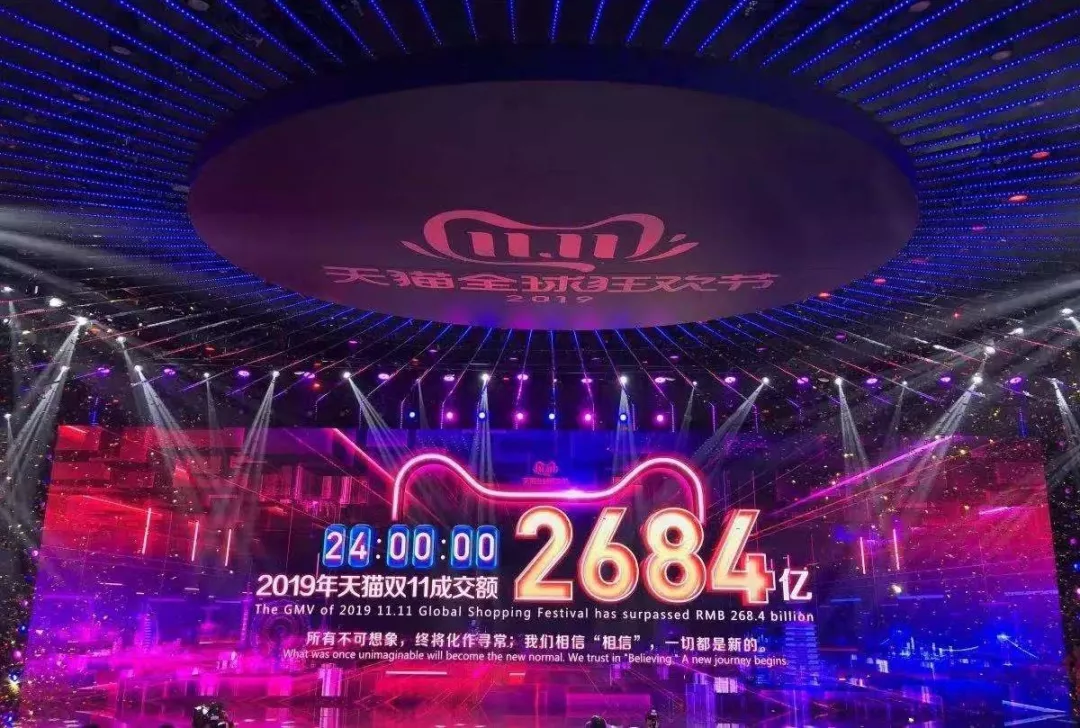
2019 Tmall Double 11 Shopping Festival
On the evening of November 11, China's Singles' Day and Alibaba's huge shopping event-the Double 11 Global Shopping Festival-Alibaba Group chief technology officer (CTO) Jeff Jianfeng Zhang said at an event in Shanghai: "Not just any cloud provider is powerful enough to support the traffic seen at the scale you see with Double 11. In China, you've only got two choices when it comes to cloud, Alibaba Cloud and 'the other ones.'" He continued to say that Alibaba Cloud is different, and it's special because ten years ago we put down the first line of code for Apsara, making China's only proprietary cloud operating system.
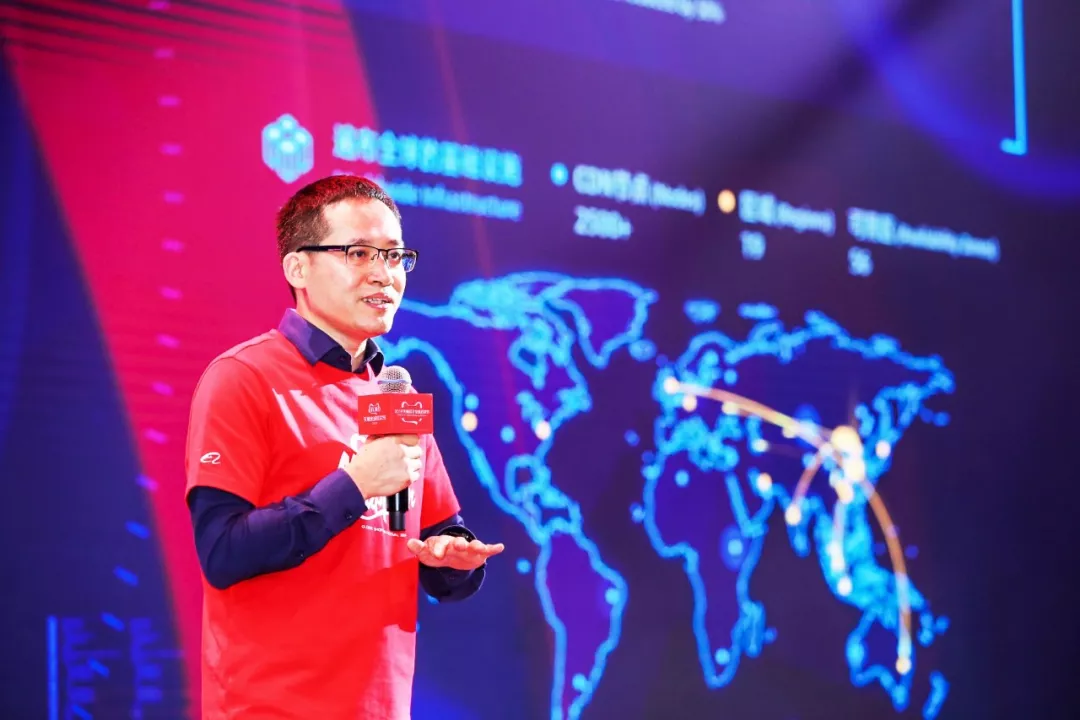
Pictured above is Jeff Jianfeng Zhang, CTO of Alibaba Group and President of Alibaba Cloud Intelligence
This year's Double 11 promotion event on Tmall set yet another major world record with 544,000 orders per second during peak periods, and 970 petabytes of data processing volume within the 24-hour span of the major online shopping event. This year, with all of Alibaba's core systems running on the public cloud, the infrastructure handled this giant influx of traffic with ease.
"When it comes to cloud computing technology, Alibaba's like an airplane flying at turbo speed that's equipped with a brand-new engine." According to Jeff Zhang, Alibaba is the first public cloud provider to deploy its core systems with trillion-scale workloads in the public cloud. "Many companies happen to not deploy their own business systems on their own public cloud systems, but Alibaba is different and plans to eventually migrate all our systems to Alibaba Cloud."
Alibaba's the world's first Internet giant to run 100% of its core systems in the public cloud.
Below are excerpts from Jeff Zhang's Speech, transcribed and translated:
Last year, we made the decision to migrate all of Alibaba's core systems to the cloud. Actually, there should be a qualifier here, and that's "Alibaba." That's right. We're putting all of our core systems on Alibaba Cloud. Not just any cloud provider is powerful enough to support the traffic seen at the scale you see with Double 11. In China, you've only got two choices when it comes to cloud, Alibaba Cloud and "the other ones."
Then, what is it that makes Alibaba Cloud so different from all "the other ones," you say? Well, first, Alibaba Cloud is the only cloud that has been developed from scratch in China. Ten years ago, we put down the first line of code for Apsara, making China's only proprietary cloud operating system. Dr. Wang Jian, the founder of Alibaba Cloud, later named the underlying scheduling system and infrastructure of Alibaba Cloud the Apsara Operating System, named after the celestial sky dancer Apsara from Indian mythology, as it's now up flying in the cloud.
Whereas many other clouds are transformed by using open-source software, Alibaba Cloud is completely proprietary. This is a crucial differentiator.
And, second, when it comes to cloud computing technology, Alibaba's like an airplane flying at turbo speed that's equipped with a brand-new engine. In the past, enterprises ran various loads in the cloud, but not typically on their own core systems. But now Alibaba's running all of our core systems on the cloud. And, with many of our core technologies open to the greater community, we've trying to lower the barrier for adoption. Our thoughts are: We have the best system, and everyone is welcome to use it.
All of Alibaba's core systems, 100%, are running on our own public cloud. This is something that no other company has done before. Many companies happen to not deploy their own business systems on their own public cloud systems, but Alibaba is different and plans to eventually migrate all its systems to Alibaba Cloud. We expect all of Alibaba's system to run on the Apsara operating system.
You may think then this cannot be a simple process. It has to be major technological leap, one that requires overcoming several immense challenges, right? Well, you're right, but to put things simple, we've done a few things to help improve performance significantly after migration.
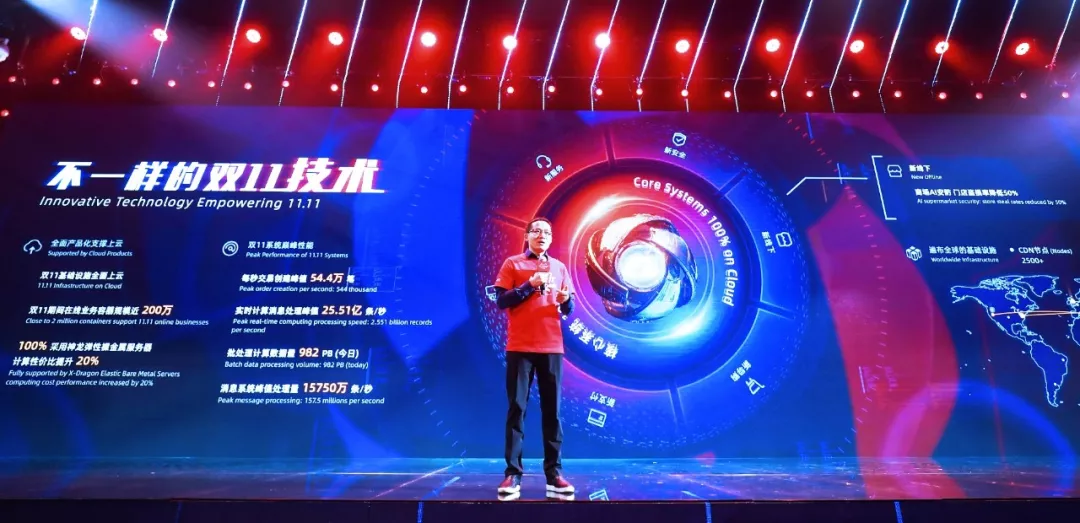
Today, the Double 11 shopping event started on midnight, with no network jitter reported in the first 10 minutes-something that's simply unheard of given the great traffic spikes you'll see with this kind of event. And the shopping experience of our customers was all smooth sailing. This was in thanks to the following technologies:
First, we have developed the third generation of the X-Dragon server architecture for our core virtual machine systems with this new iteration being fully unleased just in time for this year's Double 11. For servers in general, the relationship between workload and capacity is not linear as capacity decreases gradually. However, X-Dragon servers can keep producing output that is linear with the workload despite being up against what could be extremely high workloads. This has not been easy to develop.
Second, we have developed a cloud-native database, POLARDB. In fact, this year, two major database products were used during the Double 11 shopping event. One is the proprietary OceanBase, which has topped the TPC-C benchmark. The other is POLARDB, which also happened to be widely used during this year's Double 11 to the result of zero downtime. With these database systems on board, our per-second peak is far higher than that of traditional databases like Oracle.
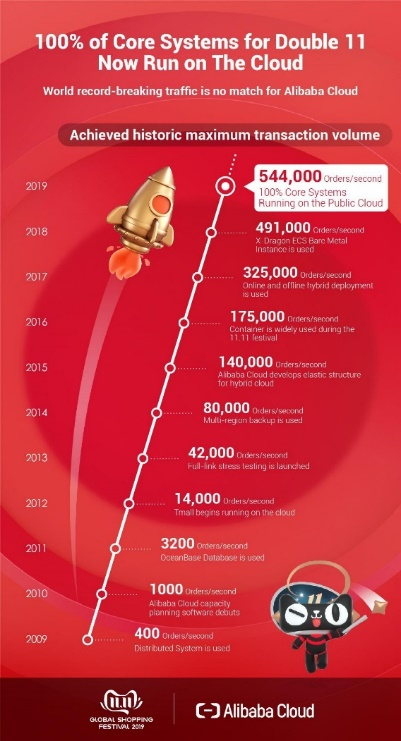
Third, within our systems, we have decoupled computing from storage, with there being space dedicated to data storage. With this kind of system, data is accessed remotely, and storage can be easily scaled out because it has a dedicated pool. This is something that was impossible in the past because the network access speed was always a bottleneck for remote storage scenarios.
Fourth, the reason why remote storage is not only possible but reads and writes are even faster than local disks is that we have built an RDMA network. We are the first company in the world to build a large-scale RDMA network.
In reality, we have made some crucial breakthroughs in terms of these four aspects.
The Apsara operating system can now oversee and schedule more than 100,000 servers. With so many applications running today, their workloads are not evenly distributed at any given point. At midnight, most of computer resources were allocated to applications such as transactions, and then to the data processing system after 01:00. Data processing hit a new high during this year's event with about 970 petabytes of data being processed, compared with the 300 petabytes of data during Double 11 in 2017, and 600 petabytes during Double 11 in 2018.
If you have no idea how much data a petabyte holds, according to a staff personnel at China Central Television (CCTV) I talked to the other day, all the programs that CCTV has produced over the decades amount to around 80 petabytes in data. However, during Double 11, a whopping 970 petabytes of data need to be processed in 24 hours, which would be impossible without a sophisticated technological system working in the background.
Massive data also needs to be processed in real time. This is why you can see there being highly personalized flash sales today on Alibaba's various e-commerce platforms. So far, over one billion delivery orders have been generated in our Cainiao logistics network, and the figure is still rapidly rising. All of these tasks rely on the mighty computing power of Alibaba Cloud.
In terms of data processing, stream processing is used in addition to batch processing, which together helps us process data quickly, making it all work in real time. The constantly changing transaction figure that you see is not calculated in some random database but generated by the automatic upward aggregation of every single order in real time. This streaming system can process 2.5 billion records per second.
To manage all of our servers and message flows, we have developed the world's largest message system, called MQ.
Today, the technology stack incorporating the Apsara system, the big data processing platform, and intelligence-driven applications has transformed into a new distributed cloud-based platform. It allows all the core applications of the Alibaba economic system to run on it.
Also this year we released our in-house designed chip, Hanguang 800. We expect to see a large number of Alibaba's AI applications running on our own chips during the next Double 11 event.
The Apsara system, X-Dragon servers, databases, switches, switch operating system, and RDMA network that are powering Double 11 today are all the proprietary technologies of Alibaba Cloud. Till now, we have built a rich set of powerful capabilities. Hardware, databases, the cloud computing operating system, and the core application platform mentioned above, all the four components are rolled into one, which makes for what is the biggest difference that separates this year's Double 11 from previous ones.
What was once unimaginable will become the new normal.
We dare to believe because we know what the future holds.
To the next Double 11!
Check out Alibaba's Big Double 11 Bash and See How Alibaba's Revolutionizing E-Commerce

2,593 posts | 792 followers
FollowAlibaba Clouder - December 3, 2019
Alibaba Clouder - January 22, 2020
Alipay Technology - November 26, 2019
Alibaba Clouder - November 10, 2020
Alibaba Clouder - November 27, 2019
Alibaba Clouder - November 9, 2018

2,593 posts | 792 followers
Follow ECS(Elastic Compute Service)
ECS(Elastic Compute Service)
Elastic and secure virtual cloud servers to cater all your cloud hosting needs.
Learn MoreLearn More
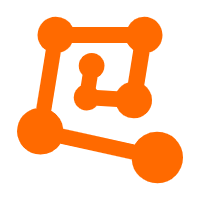 Platform For AI
Platform For AI
A platform that provides enterprise-level data modeling services based on machine learning algorithms to quickly meet your needs for data-driven operations.
Learn MoreMore Posts by Alibaba Clouder